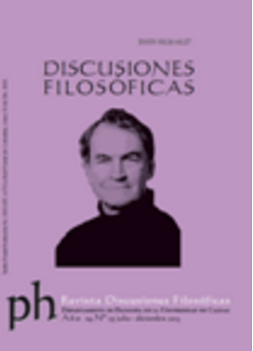##plugins.gregg.article.details.published##: 2013-07-01
Como Citar
Allen, R. J. (2013). -. Discusiones Filosóficas, 14(23), 41–65. Recuperado de https://revistasojs.ucaldas.edu.co/index.php/discusionesfilosoficas/article/view/735
Fomatos de Citação
Autores
Resumo
-
Palavras-chave
Referências
Allen, Ronald. “The nature of juridical proof.” Cardozo Law Review. 1991. 373-422. Print.
---. “Factual ambiguity and a theory of Evidence.” Northwestern University Law Review. 1994. 604-640. Print.
---. “Expertise and the Daubert decision.” Journal of Criminal Law and Criminology. 1994. 1157-1175. Print.
---. “Artificial intelligence and the evidential process: The challenges of formalism and computation.” Artificial Intelligence & Law. 2001. 99-114. Print.
Allen, Ronald and Joseph S. Miller. “The Common Law theory of experts: Deference or education.” University of Georgia Law. 1993. 1131-1147. Print.
Allen, Ronald, Kuhns, Richard, Swift, Eleanor and David S. Schwartz. Evidence: Text, cases and problems. New York: Aspen Publishers, 2011. Print.
Burns, Robert P. A Theory of the Trial. Princeton: Princeton University Press, 2001. Print.
Cheng, Edward and Albert Yoon. “Does Frye or Daubert Matter? A Study of Scientific Admissibility Standards.” Virginia Law Review. Apr. 2005: 471-513. Print.
Edmond, Gary. “Is reliability sufficient? The Law Commission and expert evidence in international and interdisciplinary perspective (Part 1).” The International Journal of Evidence of Proof. 2012. 30-65. Print.
Green, Thomas. Verdict according to Conscience: Perspectives on the English Criminal Trial Jury. Chicago and London: University of Chicago Press, 1985. Print.
Jackson, John and Sarah J. Summers. The Internationalisation of Criminal Evidence. Cambridge: Cambridge University Press, 2012. Print.
Mueller, Christopher and Laird C. Kirkpatrick. Evidence. New York: Aspen Publishers, 2009. Print.
Polya, George. Mathematics and Plausible Reasoning: Patterns of Plausible Inference. Princeton: Princeton University Press, 1990. Print.
Walton, Douglas. Legal Argumentation and Evidence. Pennsylvania: Penn State University Press, 2002. Print.
---. “Factual ambiguity and a theory of Evidence.” Northwestern University Law Review. 1994. 604-640. Print.
---. “Expertise and the Daubert decision.” Journal of Criminal Law and Criminology. 1994. 1157-1175. Print.
---. “Artificial intelligence and the evidential process: The challenges of formalism and computation.” Artificial Intelligence & Law. 2001. 99-114. Print.
Allen, Ronald and Joseph S. Miller. “The Common Law theory of experts: Deference or education.” University of Georgia Law. 1993. 1131-1147. Print.
Allen, Ronald, Kuhns, Richard, Swift, Eleanor and David S. Schwartz. Evidence: Text, cases and problems. New York: Aspen Publishers, 2011. Print.
Burns, Robert P. A Theory of the Trial. Princeton: Princeton University Press, 2001. Print.
Cheng, Edward and Albert Yoon. “Does Frye or Daubert Matter? A Study of Scientific Admissibility Standards.” Virginia Law Review. Apr. 2005: 471-513. Print.
Edmond, Gary. “Is reliability sufficient? The Law Commission and expert evidence in international and interdisciplinary perspective (Part 1).” The International Journal of Evidence of Proof. 2012. 30-65. Print.
Green, Thomas. Verdict according to Conscience: Perspectives on the English Criminal Trial Jury. Chicago and London: University of Chicago Press, 1985. Print.
Jackson, John and Sarah J. Summers. The Internationalisation of Criminal Evidence. Cambridge: Cambridge University Press, 2012. Print.
Mueller, Christopher and Laird C. Kirkpatrick. Evidence. New York: Aspen Publishers, 2009. Print.
Polya, George. Mathematics and Plausible Reasoning: Patterns of Plausible Inference. Princeton: Princeton University Press, 1990. Print.
Walton, Douglas. Legal Argumentation and Evidence. Pennsylvania: Penn State University Press, 2002. Print.

 PDF (Español)
PDF (Español)
 FLIP
FLIP





















